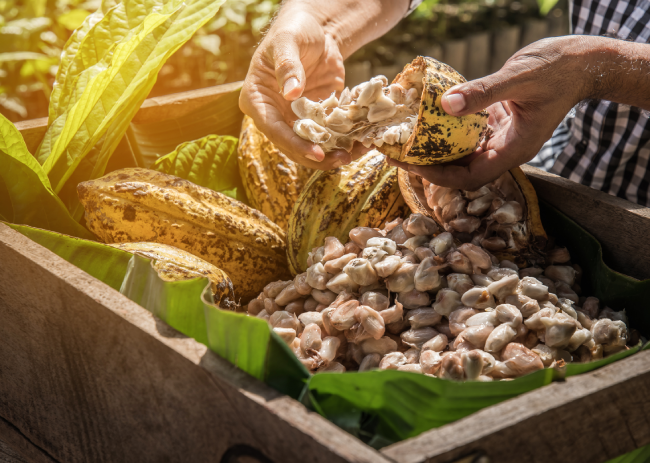5 Factors to Consider When Choosing a Supplier in the Food Industry
Choosing a supplier for your business can be a complex endeavour, and who you choose will largely depend on your business strategy, long-term plans and priorities. There are many factors to consider, so you cannot rush the process. Keep in mind that the choices you make can impact your reputation and that the suppliers you work with must have the same beliefs and follow similar business patterns to yours. You must also have the same goals, and they should be able to help your business progress.
Lastly, you must be able to establish good communication with them so that if something comes along the way that isn’t to your liking, you can change it and find alternatives. When you operate in the food industry, ensuring seamless processes is of chief importance.
1. Quality
Delivering quality consistently is one of the most important things for any business. It’s one of the most efficient ways to withstand pressure from your competitors and ensure that customers will keep coming back for your products instead of replacing you with one of the numerous other brands on the market.
Owning a food business, quality is the surest way to build trust with your clientele. you must make sure that you meet their standards and can deliver premium-level ingredients and recipes throughout the years. Dropping your standards won’t just cause you to lose clients, it can also harm your reputation if, for instance, your name gets dragged into a food poisoning scandal.
But how can you be sure that the supplier you choose is focused on quality and has high standards as well? The surest way is to do some research on them and how they operate. For example, if you need a cocoa supplier, you should look for someone who offers a wide range of cocoa beans and other products derived from cocoa so that the products you offer your own clients will be top-notch.
The ideal suppliers are the ones who work with people across the supply chain in order to ensure high standards of sourcing and manufacturing. Some will be better equipped to respond to your regional needs, while others can provide you with goods that are suitable for global audiences. And there are also some suppliers that can fit both market niches.
2. Sustainability
Sustainability is steadily becoming the preferred choice for the majority of customers. Food supply chains are responsible for approximately 13.7 billion metric tonnes of carbon dioxide emissions every year, or almost 30% of all greenhouse gasses caused by human activity.
Activists are also discussing what can be done to mitigate the effects of the emissions including reducing energy consumption, minimizing waste and switching to green production practices. Brands must make more sustainable choices across manufacturing, production, and e-commerce to meet demands.
Work with a supplier that is committed to challenging unsustainable systems and bringing actual change into the way the sector operates. After all, sustainable choices must take place across all business areas, or you won’t be able to meet your goal and can’t call your company truly sustainable.
If you work in the food industry, working with local suppliers is a great way to reduce the carbon footprint that comes with transporting produce over large distances. Choose a nuts producer that gives you the opportunity to see exactly what’s going on in the supply chains delivering to you.
Keep in mind that sustainability is focused on both nature and preserving resources, as well as making sure that local communities and farmers are not affected. A sustainable supply chain is fully traceable and transparent so that you have a good idea of the entire process and know exactly what it takes to bring the raw materials to you.
3. Flexibility
Markets and business environments change very fast nowadays, and you must be able to keep up with the demands. Working with a supplier that can be flexible and respond quickly to changes in plans, new demands, and emergencies is vital. You might believe that you have no use for flexibility if you have everything well planned, but the unexpected can still sneak up on you.
As part of working in the food industry, you must make room for unpredictable situations and have the resources to navigate them in such a way that your company isn’t affected. This includes maintaining food safety standards, ensuring traceability and transparency so the customers know where the ingredients came from, disclosing accurate information about allergens, and ensuring stellar hygiene standards and pest control.
Being flexible shouldn’t mean compromising on reliability. Your suppliers should not let you down, and you shouldn’t deal with faulty or incomplete deliveries. You must be sure that you can always count on the businesses you work with to deliver according to plan. Otherwise, you won’t be able to provide your clientele with a favourable experience.
4. Communication
All businesses need good communication across all areas. Teams need it in order to work together well, leaders need it in order to empower the employees depending on them, and business owners need it with their suppliers so that they can establish smooth procedures.
How well a supplier communicates and how transparent they are should definitely weigh heavily on whether you choose to work with them or not. Look for whether it is easy to get in contact with them if you can get straightforward answers and if they have a reliable communication system in place.
Moving toward global markets makes communication even more important for the food industry. Discussions and responses must be timely and pertinent, all members of the team must have unhindered access to the communication tools, and language must remain clear. Being aware of the social and cultural backgrounds of other members of the team is also crucial.
Any self-respecting supplier should have a representative that you can get in touch with in case something happens. In the beginning, you can also test their response times and how well-equipped their systems are to handle your demands. You should also be perfectly clear about your expectations regarding communication so that you can weed out some of those that don’t fit your requirements right from the start.
5. Costs
The cost of any endeavour is crucial for businesses, and you must take them into account when choosing a supplier as well. The best thing is to have a figure in mind before so that you have a well-established starting point. However, if a company can offer more functionality and features for an extra fee, you should carefully consider if it isn’t actually a preferable alternative. Some suppliers might even offer discounts if you choose to buy ingredients in bulk. Some might be willing to offset higher fees with products that are of much higher quality.
If such arrangements would benefit you and your business, you should look for suppliers that can meet these specific requirements. To be certain, make sure to negotiate payment terms before the first food order. You want to be certain of how much you need to pay beforehand so that you can avoid ending up with huge bills in the aftermath.
Choosing a supplier is not an easy task, as there are so many options out there and so many factors you must carefully consider. Take your time, and don’t rush into a decision right away. It takes time and patience to build something that lasts.




